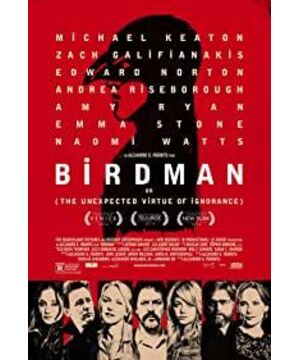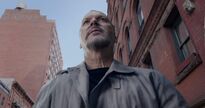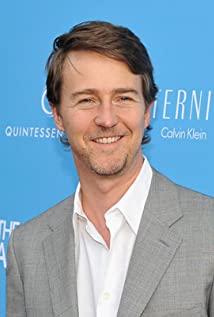In 2015, Birdman (The Accidental Beauty of Ignorance) won the Academy Award for Best Picture.
As someone who is particularly interested in existentialism, especially when it is used to emphasize the idea of complete individual freedom, I am ecstatic for this film. In the film, freedom is the ability to make choices that determine self-consciousness in a world that seems meaningless. Existentialism, therefore, is the search for meaning associated with self-development.
Is our life a struggle? Or does the outer struggle lead to the inner meaning?
Birdman tells the story of one-time action star Reagan Thompson (Michael Keaton) trying to make a comeback in a Broadway production. At the very beginning of the film, we see Reagan floating and hear a Batman-like voice saying, "How did I get here?" - it's a simple but profound question that we all live in. Ask yourself at some point.
As many philosophers ask a series of similar questions: " Where am I? Who am I? How did I come to this world ? Behind these questions lie deeper questions. Each of us at some point in our lives It's natural to feel lost all the time, and Reagan was that lost, and at the same time he felt hopeless about his loss.
The "Birdman" that mocked Reagan was his lost ideal, the standard of personal meaning he once had . The birdman occasionally appears on camera, showing Reagan's inner turmoil. There was a confusion between Reagan and Birdman because their identities were once one: Reagan was Birdman. But now Reagan wants to leave the role of Birdman, so he has to leave his sense of self, which forces him to find the meaning of his own existence. So Birdman is the story of a man searching for meaning in his existence.
At the beginning of the film, Reagan's stage play didn't go well. He seems lost, forever haunted by his former heroic self, the character "Birdman" who brought him fame . For Reagan, returning to his famous role in "Birdman 4" will bring meaning to his life. However, he understands that "Birdman" represents success and fame in the eyes of the audience, and he also understands that for him personally, "Birdman" is a lie, and he does not want to repeat the past. He has to stay away from this role, because Birdman is a false self, a shallow self, a self given meaning by a group of unknown and fleeting people. Thus, his task turned to finding his true self independent of Birdman.
Reagan's rejection of "Birdman" was clearly the right move, but it also left him wandering in confusion. Reagan sadly joked about what was left of himself: "I'm the answer to a damn question." As someone who had lost his sense of self, Reagan began to compare himself to the standards of success set by others. He'd heard of actors making millions of dollars in Hollywood blockbusters, something he achieved with "Birdman." He struggles in the shadow of a popular co-star, Mike, who can only get erections on stage. The strained relationship between him and his daughter shattered any surviving evidence of self. His daughter Sam yelled at him:
No one cares about you at all, let's face it! All you do is try to get attention again, and guess what, everyone lives every day to get attention, and you act like no one else exists. You are forgotten by the world, you are forgotten by everyone, who the fuck are you? You never existed. do you understand? You are not important at all. In fact, you don't matter at all, accept it.
Sam articulates the feeling that the meaning of existence comes from the attention or approval of others, and that social networks establish layers of value . But Reagan's desire for popular approval left him feeling empty. Anxiety and despair overwhelm his quest for meaning because he finds no meaning, receives no recognition, not even his daughter or his closest confidant.
I sympathize with Reagan. Deep down, I think we are all like that. A tendency to seek approval from others is common, including through social networks. We seek approval when we try to overcome the near-paralyzing fear that we are irrelevant . Perhaps we got a response, and a series of “likes” on Weibo or WeChat brought us short-lived joy in the meaningless “moments of sharing”. Or maybe we don't get a response, which only makes us more worried about our insignificance.
We seek affirmation and meaning in the general public, but this is an abstract, fleeting entity that can never stabilize or flesh out meaning. The philosopher Kierkegaard once said, " Wherever the masses are, there are lies ." Equating the masses with lies, he declared that so many voices cannot convey meaning. In the popular crowd, truth does not exist and cannot be found anywhere. Like many of us, Reagan sought affirmation in the crowd, only to fall into despair.
The hopeless exploration of meaning in Birdman is why I both love and fear the film. For me, this is also the essence of existential thinking. The most intriguing aspect of the film is Reagan, who vividly reminds me of myself . However, his quest for meaning also makes me uneasy every time I watch the film. Comparing my journey to Reagan's, I realized that I was listening to my own "Birdman," my own fictional ideal of identity instilled by the crowd. Maybe it's just a narrative of life. There is a fine line between finding meaning and wandering desperately in search of it. No wonder the author of Ecclesiastes wrote that everything has no meaning and that we lose meaning when we seek meaning in the crowd.
Yet we all want to win, and we all want to give meaning to our existence. And other existentialists create meaning for themselves (eg Nietzsche and Sartre).
"Birdman" is also called "the unexpected beauty of ignorance". Absurdity and ignorance are not what we usually think of as categories of belief formation and self-development. Ridiculous and ignorant are not usually synonymous, but given the context of this film, they are similar. Ignorance here refers to Reagan as an amateur theater director. Neither trained nor experienced in this regard. However, to the shock of critics, despite his ignorance, his debut was a masterpiece. The goal Reagan pursued was absurd. Even those closest to him thought the feat was absurd. However, he still indulged in it, without hesitation.
For existentialists, absurdity and ignorance are often necessary attributes . In "Birdman," Reagan's brilliant performance on stage was born out of ignorance: he realized himself in a way that transcended the crowd and made sense. Ultimately his play received critical acclaim, but Reagan felt that his realized self was more important than popular approval.
The film's final scene leaves the audience with a lot of room for interpretation, a testament to the film's arcane narrative . Reagan suffered a gunshot wound in the play's final scene, and in the hospital he saw several birds hovering over his room. So he went to the windowsill several stories above the ground. He leaped. Then the camera cuts to his daughter entering the room. She looked at the empty room. Thought her father was gone, but she noticed an open window. Terrified, she walked over and looked down. She thought her father's body would lie on the cold concrete below, but no. Then she looked up and stared, her face full of curiosity and hope.
what did she see? we do not know.
Did Reagan die in despair and senselessness? possible. However, I think Reagan became a veritable flying "Birdman" after realizing his ego . Given the magical realism of the film, my interpretation is not entirely impossible. Reagan's leap of faith was beyond reality, and he and his daughter finally realized who he was. Reagan found himself.
"Fly or fall, that's the rule of life; fly or fall, that's the rule of spreading your wings. In the same way, I want to make the same leap every day. It made me feel at ease in the face of despair, gave me wings and set me free when the voices of the crowd tried to restrain me. I am who i am. Let's jump from the window of the real "ward" and into the arms of freedom.
The article was first published on the public account: the most TOP film critics
View more about Birdman or (The Unexpected Virtue of Ignorance) reviews











